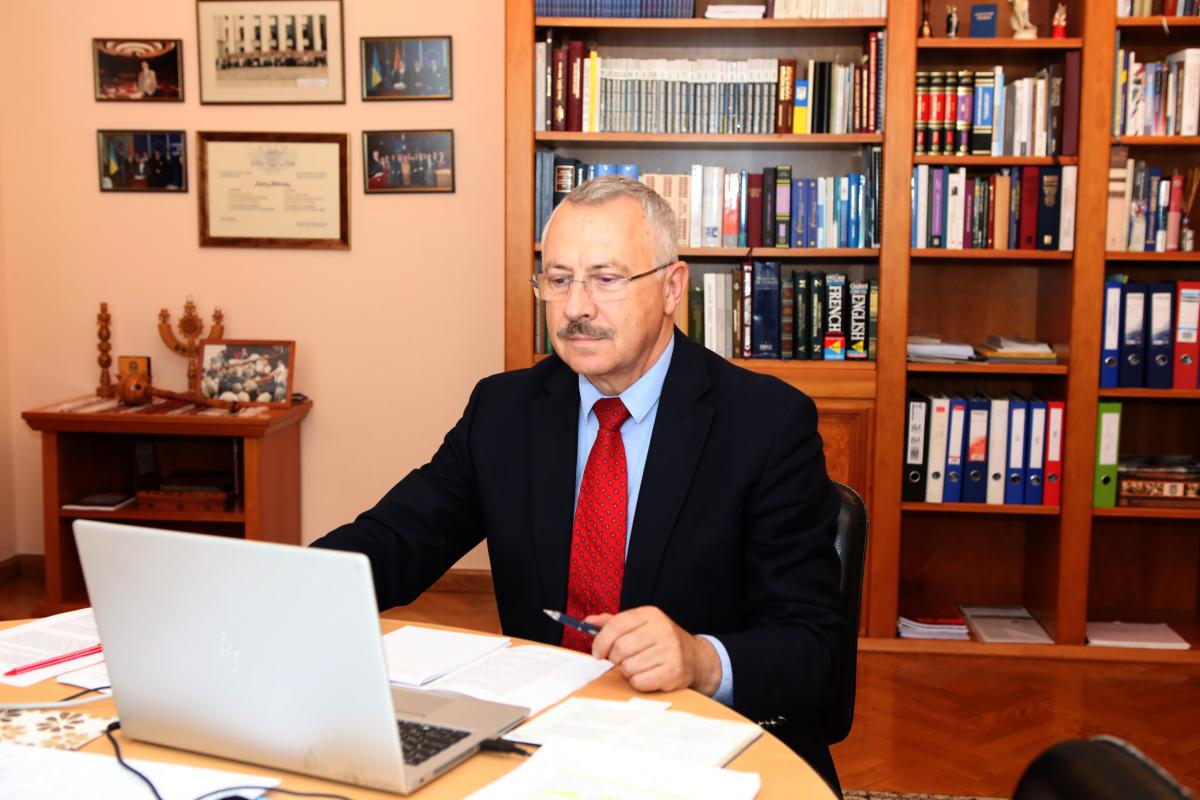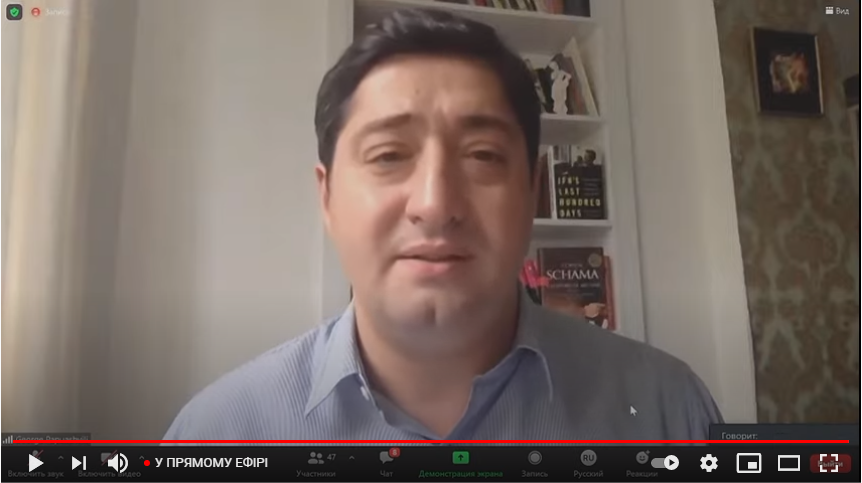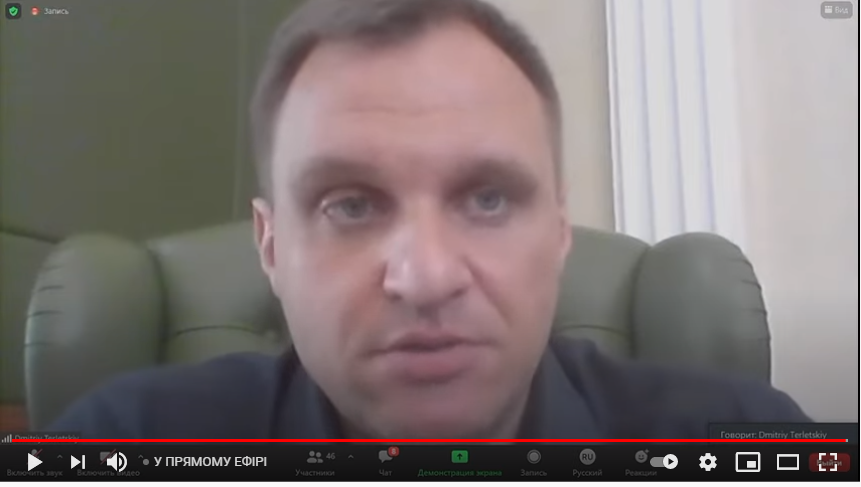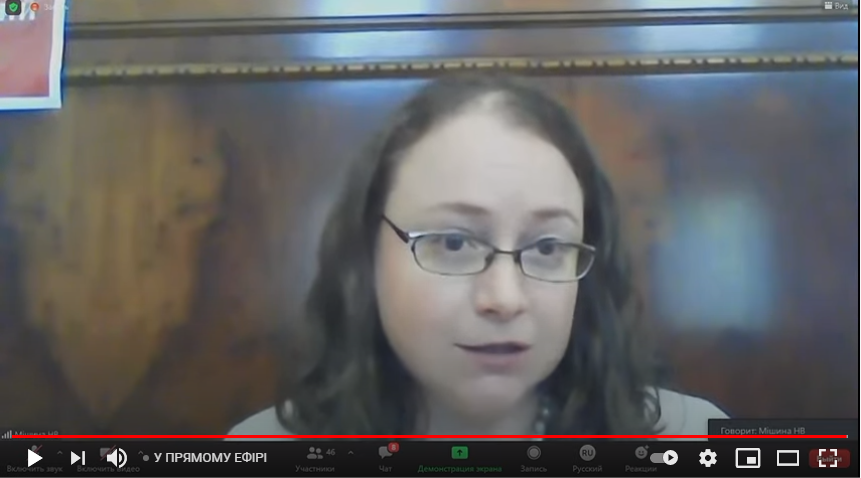The Role of Constitutional Justice Bodies in the Human Rights Protection Mechanism
The scientific and practical online conference “The Role of Constitutional Justice Bodies in the Human Rights Protection Mechanism“, which took place on June 16, 2021 as part of events dedicated to the 25th anniversary of the Constitution of Ukraine, is devoted to the discussion of current mechanisms of effective constitutional justice and access to constitutional justice.
The conference brought together judges of the Constitutional Court of Ukraine, former judges of the Constitutional Court of Ukraine, members of the Research Advisory Council of the Constitutional Court of Ukraine, representatives of the scientific and academic community, foreign experts and legal practitioners.
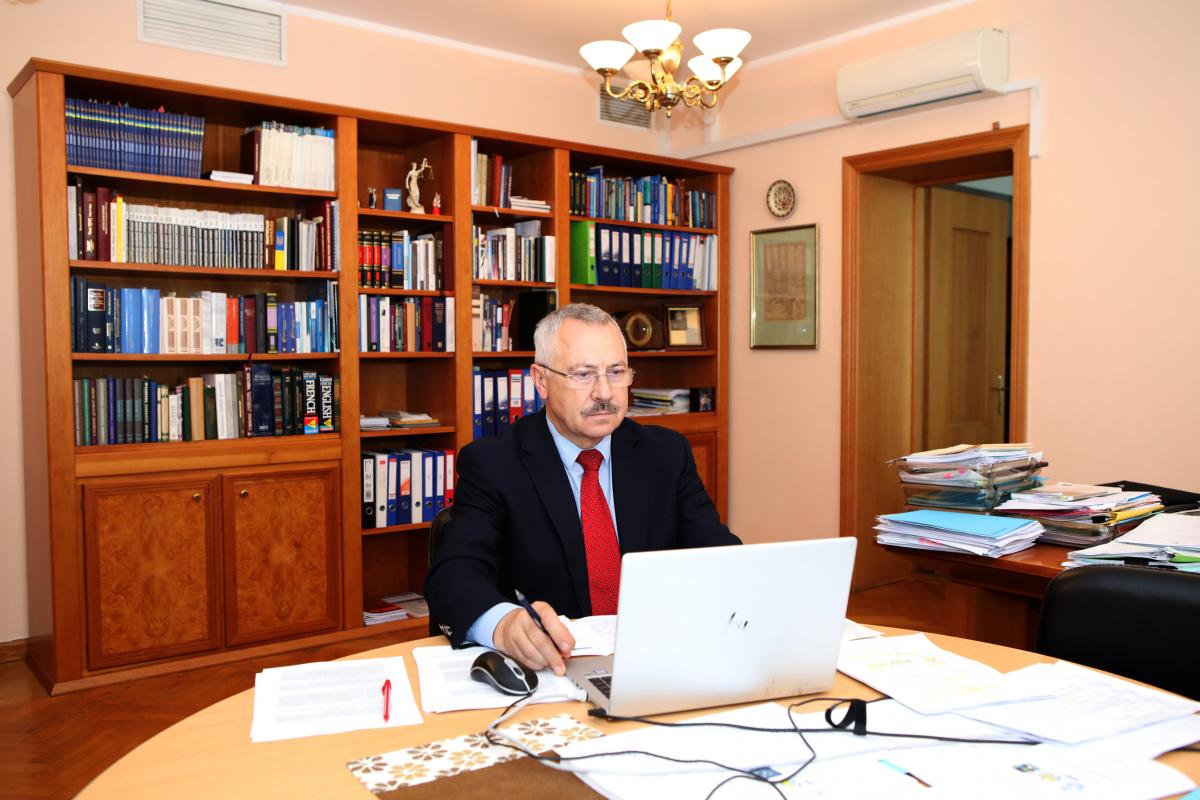 Welcoming the conference participants, Deputy Chairman of the Constitutional Court of Ukraine, Doctor of Law, Corresponding Member of the National Academy of Sciences of Ukraine Serhiy Holovaty thanked the co-organisers of the event - the National Academy of Legal Sciences of Ukraine, National University “Odesa Law Academy” and the OSCE Project Co-ordinator in Ukraine for holding a scientific discussion.
Welcoming the conference participants, Deputy Chairman of the Constitutional Court of Ukraine, Doctor of Law, Corresponding Member of the National Academy of Sciences of Ukraine Serhiy Holovaty thanked the co-organisers of the event - the National Academy of Legal Sciences of Ukraine, National University “Odesa Law Academy” and the OSCE Project Co-ordinator in Ukraine for holding a scientific discussion.
The topic of today's conference is extremely topical and complex, said Serhiy Holovaty, because in less than 25 years the constitutional justice of Ukraine has evolved and changed, thus the analysis of the jurisprudence of the Constitutional Court of Ukraine, reform of 2016, achievements and challenges will help improve tools for solution of problematic issues.
Analysing the idea of protecting human rights through constitutional justice, the speaker focused on historical origins. This idea was first implemented in the early XVIII century. However, according to Serhiy Holovaty, the starting point for the practical implementation of the protection of human rights through constitutional jurisdiction was the landmark decision of the Supreme Court of the United States in 1803 in the case of “Marbury v. Madison”. The concept of natural human rights put on top of human existence and a social organism, which is the state, was applied in jurisprudence.
On behalf of the organisers of the scientific event the First Vice-President of the National Academy of Legal Sciences of Ukraine, Professor of Criminology of Yaroslav Mudryi National Law University, Member of the Research Advisory Council of the Constitutional Court of Ukraine, Doctor of Law, Professor, Full Member of the National Academy of Legal Sciences of Ukraine Volodymyr Zhuravel, National Legal Adviser to the OSCE Project Co-ordinator in Ukraine Oleksandr Vodyannikov, Professor of the Department of Constitutional Law of the National University “Odesa Law Academy”, Member of the Research Advisory Council of the Constitutional Court of Ukraine, Doctor of Law, Professor Mariana Afanasieva welcomed the participants.
Judge of the Constitutional Court of Ukraine, Corresponding Member of the National Academy of Legal Sciences of Ukraine, Doctor of Law, Professor Viktor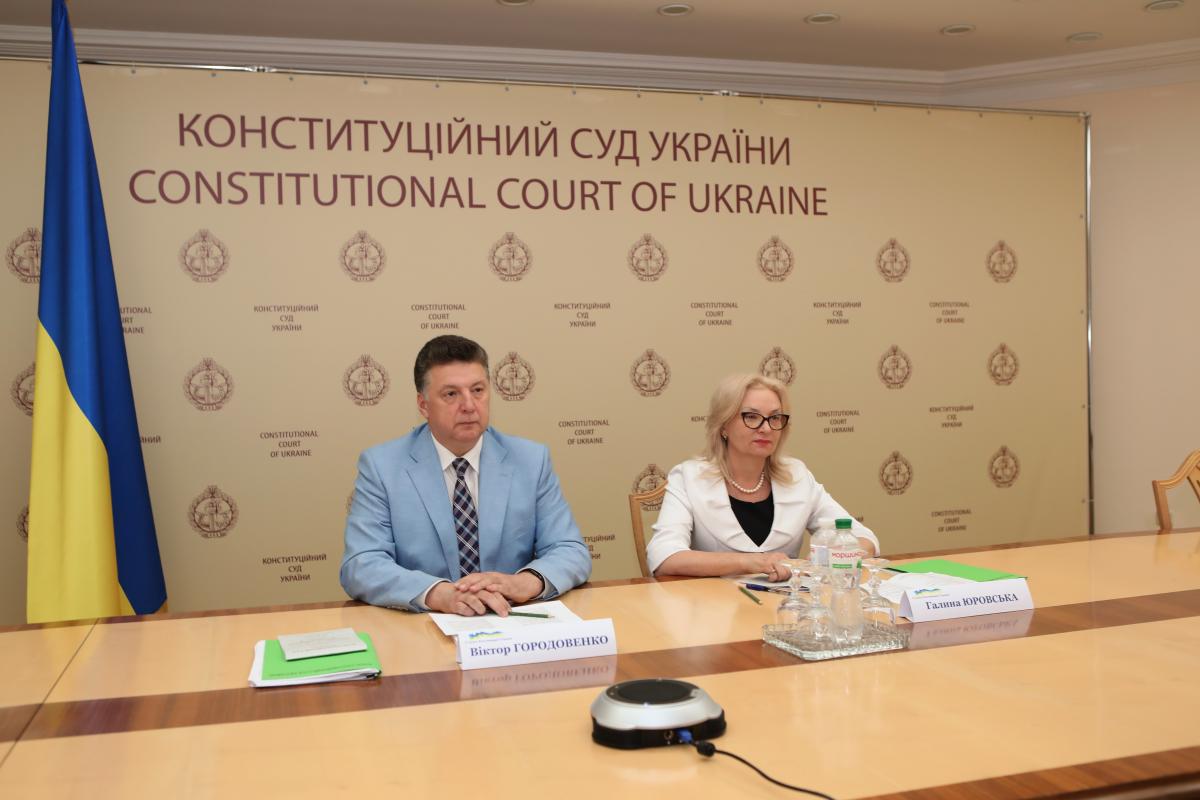 Horodovenko, who moderated the event, noted the long-term cooperation between the Constitutional Court of Ukraine and the National University “Odesa Law Academy” and stressed that during this period 258 inquiries on issues pending before the Constitutional Court had been sent to the National University “Odesa Law Academy”. He sincerely thanked the scholars and faculty for their work and noted the quality and validity of the conclusions. The Judge also thanked international experts from Georgia and Kazakhstan, who also shared their practical experience with the Constitutional Court, for their cooperation.
Horodovenko, who moderated the event, noted the long-term cooperation between the Constitutional Court of Ukraine and the National University “Odesa Law Academy” and stressed that during this period 258 inquiries on issues pending before the Constitutional Court had been sent to the National University “Odesa Law Academy”. He sincerely thanked the scholars and faculty for their work and noted the quality and validity of the conclusions. The Judge also thanked international experts from Georgia and Kazakhstan, who also shared their practical experience with the Constitutional Court, for their cooperation.
Viktor Horodovenko, in his report on the introduction of the model of a complete constitutional complaint in the national legal system, focused on the important amendments to the Constitution of Ukraine of 2016, which introduced the institute of constitutional complaint and which is actively used by other states. This institute, both in Ukraine and in other countries, the Judge noted, should play not only a human rights protection role, but also influence the entire legal system and public policy. Today in Ukraine there is a normative (incomplete) model of constitutional complaint, which not always, according to Viktor Horodovenko, both from a theoretical and practical point of view can be considered as an effective national remedy for constitutional human rights and freedoms, especially in the so-called filter before applying to the European Court of Human Rights.
The speaker spoke about some shortcomings of an incomplete constitutional complaint, including: failure to include local governments in the list of subjects of their submission, narrowing the subject of the constitutional complaint, namely the ability to appeal only laws or their individual provisions, failure to settle damages, etc.
At the same time, he dwelled on the peculiarities of the complete model of the constitutional complaint, noting the prospects for its introduction in the national legal system.
In his speech, the Judge referred to the opinions of the Venice Commission, which provided submitted proposals for amendments to the laws and the Constitution of Ukraine, recommending the introduction of a complete model of constitutional complaint in Ukraine, as in this case there is a right to appeal against any act of government, which directly violates fundamental rights.
During the conference, speeches were delivered by Professor of the Department of Constitutional Law of the National University "Odesa Law Academy", Member of the Research Advisory Council of the Constitutional Court of Ukraine, Doctor of Law, Professor Maryana Afanasyeva, Member of the European Commission "For Democracy through Law" (Venice Commission), President of the Constitutional Council of the Republic of Kazakhstan (2004 - 2017), Deputy Executive Director of the Foundation of the First President of the Republic of Kazakhstan Igor Rogov, Head of the Department of Civil Procedure of the National University "Odesa Law Academy", Member of the Research Advisory Council of the Constitutional Court of Ukraine, Doctor of Law, Professor Nelly Holubieva, Head of the Department of Constitutional, Administrative and International Law of the Kyiv Institute of Intellectual Property and Law of the National University "Odesa Law Academy", Doctor of Law, Member of the Research Advisory Council of the Constitutional Court of Ukraine, Professor Anzhelika Krusian, Special Adviser to the Constitutional Court of Ukraine, Professor of Law at Ilia State University, former member of the European Commission "For Democracy through Law" (Venice Commission), President of the Constitutional Court of Georgia (2006-2016) George Papuashvili, Professor of the Department of Constitutional Law of the National University "Odesa Law Academy", Member of the Research Advisory Council of the Constitutional Court of Ukraine, Doctor of Law Nataliia Mishyna, Head of the Department of Constitutional Law of the National Law University "Odesa Law Academy", Member of the Research Advisory Council of the Constitutional Court of Ukraine, Candidate of Law, Associate Professor Dmytro Terletskyi.
The speakers focused on the role of constitutional justice bodies in the mechanism of protection of voting rights of citizens, namely the role of the Constitutional Court of Ukraine in considering cases related to the election process. These included, in particular, the political nature of electoral legislation and the criteria that could be used to establish the political characteristics of electoral rights.
The issues of the influence of the decisions of the Constitutional Court on the consideration and resolution of civil cases were also discussed and the legal positions of the body of constitutional jurisdiction of the state, their essence and content in the protection of human rights were analyzed.
The speakers also discussed the practice of the Constitutional Court of Ukraine on the protection of human rights, as well as the legal consequences of decisions of the body of constitutional jurisdiction in criminal proceedings. At the same time, the participants considered the issues of hierarchy of constitutional values, their actualisation in the decisions of the body of constitutional jurisdiction, as well as the application of the hermeneutic method in terms of constitutional principles and values.
The procedure of organisation and activity of the Constitutional Court of Georgia and the Republic of Kazakhstan, including procedural aspects of work, was covered during the event.
The participants of the scientific conference also discussed the legally significant consequences of the acts of the Constitutional Court of Ukraine, as well as the issues of proper implementation of the Court's decisions. In particular, it was emphasised that the uncertainty of the procedure for implementing the decisions of the Constitutional Court of Ukraine causes a number of crucial but still unresolved issues.
All participants agreed that such events are important for professional discussion of topical issues in the sphere of constitutional justice.
The video of the conference is available on the official YouTube channel of the Court.

